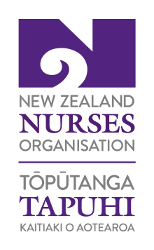
Media release 7 August 2018
Majority vote to ratify DHB MECA offer
The DHB NZNO Multi-Employer Collective Agreement for Nurses, Midwives and healthcare assistants is settled, bringing to an end nearly a year of negotiations. The fifth offer to the 30,000 NZNO DHB members has been ratified by online ballot.
Industrial Services Manager Cee Payne reports that voter turnout was high with a significant majority in favour.
“The campaign for safe staffing and better pay that continued through nationwide Rallies for Health, helped to bring public attention to the unacceptable workloads and working conditions of the public health sector nursing workforce and this helped to secure an acceptable MECA.”
NZNO confirms it will with urgency work with the DHBs on implementation.
“Immediate attention to improving safe staffing with complete implementation of CCDM by 2021 will address longstanding issues of work load and working conditions which, have negatively affected the quality of care nurses provide and the morale of nursing teams.
“The ability to realise pay equity for public sector nurses and midwifes by December 2019 will address the historic undervaluing of work in a profession where the majority of employees are women, laying down a foundation for a much safer and valued career in nursing,” Cee Payne said.
NZNO president Grant Brookes said:
“We are very proud that the collective voice of NZNO members, was heard throughout the country and drove up investment in the public health system and workforce.”
NZNO Kaiwhakahaere Kerri Nuku said:
“We have much more work to do from here on to secure decent pay, safe staffing and improved working conditions for nurses employed by Māori & Iwi providers, those in primary health care, aged care and private hospitals because they also deserve to be highly valued for their contributions to health care.”
In addition, Memo Musa, Chief Executive says that securing top-level additional Government assurance through the Safe Staffing Accord, over and above the requirements in the DHB NZNO MECA shows the issues articulated by members have been heard.
“I thank our negotiating team that worked relentlessly, who were committed to getting an offer acceptable to members. We also thank our members, CTU unions affiliate members and the public who supported NZNO during the negotiations,” he said
Ends.
Media enquiries to NZNO media adviser: Karen Coltman 027 431 2617.